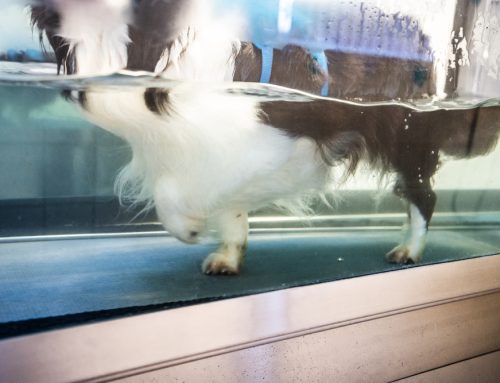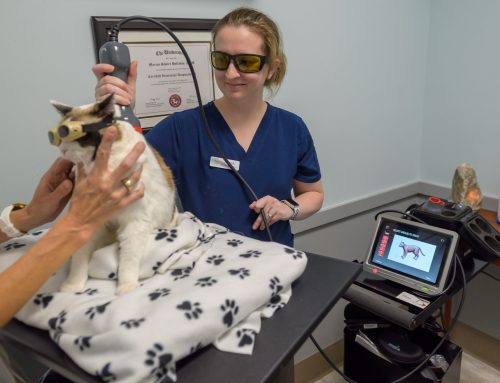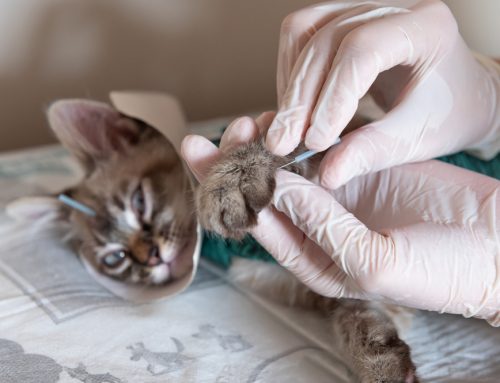Pets, like people, can experience skin problems that leave them feeling uncomfortable and irritable. Whether it’s an allergic reaction, a parasite, or an infection, skin conditions can range from mild to severe and often require veterinary care. At Central Houston Animal Hospital, we frequently see unhappy pets suffering with skin issues, and we understand the importance of getting them back to feeling like themselves.
Let’s explore some of the most common skin conditions in pets, how to spot them, and what you can do to help your dog or cat recover quickly and comfortably.
Common Skin Conditions in Pets
1. Allergic Dermatitis
One of the most frequent skin issues we see is allergic dermatitis, which occurs when a pet has an ongoing allergic reaction. Common triggers include food, environmental allergens like pollen or dust mites, and fleas. Symptoms include intense itching, redness, hair loss, and scabbing.
- Treatment: Managing allergic dermatitis often involves identifying the allergen through allergy testing, treating any secondary infections, and using medications such as antihistamines, steroids or other allergy medication. In some cases, long-term management may involve a special diet as well.
2. Flea Allergy Dermatitis
Flea allergy dermatitis is caused by an allergic reaction to flea bites, even a single bite can lead to severe itching and irritation. Pets will often bite or scratch at the affected area, leading to hair loss and open sores. Without treatment, the skin can become infected.
- Treatment: Effective flea prevention is crucial to managing this condition. Medicated shampoos and antibiotics may be necessary to treat infections. Regular flea treatments can help prevent outbreaks (discover more about flea prevention here).
3. Hot Spots (Acute Moist Dermatitis)
Hot spots, or acute moist dermatitis, are painful, red sores that develop quickly when a pet repeatedly licks or scratches an area, encouraging bacteria to thrive. Hot spots are often seen in dogs and can be triggered by allergies, flea bites, or underlying skin infections.
- Treatment: Treating hot spots usually involves cleaning the area, trimming the fur around it, and applying topical antibiotics or anti-inflammatory medications.
4. Fungal Infections (Ringworm)
Despite its name, ringworm is not a worm but a fungal infection that can affect both dogs and cats. This condition typically results in scaly, bald patches on the skin, which can easily spread to other pets or even humans who come in contact with the pet.
- Treatment: Treatment involves antifungal medications, either topical or oral, and isolation from other pets until the infection clears up.
5. Pyoderma (Bacterial Skin Infection)
Pyoderma is a bacterial skin infection that often develops secondary to other skin issues, such as allergies or hormonal imbalances. Pets with pyoderma may experience itchy, red, or scaly skin, as well as pustules or crusted lesions.
- Treatment: Treating pyoderma requires antibiotics and sometimes medicated baths. It’s essential to address any underlying conditions that may have led to the infection in the first place.
When to See a Veterinarian
It’s easy to dismiss occasional scratching or minor skin irritations, but persistent or severe symptoms often indicate a bigger problem. Here are some signs that your pet should see a veterinarian:
- Excessive scratching or licking
- Red, inflamed, or flaky skin
- Hair loss or bald patches
- Open sores or scabs
- A foul odor from the skin or ears
If you notice any of these symptoms, it’s important to bring your pet in for an evaluation. At Central Houston Animal Hospital, we offer comprehensive dermatological care to diagnose and treat skin conditions before they worsen. From allergy testing to advanced treatments like laser therapy, we’re here to help your pet get back to feeling comfortable and healthy.
The Importance of Early Diagnosis

Many skin conditions, if left untreated, can lead to more serious problems, such as chronic infections, widespread hair loss, a miserably itchy pet or loss of sleep for the pet owner . Early diagnosis is key to preventing complications in managing the condition. During each routine wellness exam, our veterinarians check for skin abnormalities and offer preventive care to keep your pet’s skin healthy year-round.
Skin conditions are a common but manageable issue for pets. By staying alert to changes in your pet’s skin and addressing concerns early, you can help them avoid discomfort and more serious health problems. At Central Houston Animal Hospital, we provide personalized care for every pet and work closely with you to create a treatment plan that meets your pet’s needs.
If your pet is experiencing skin problems, don’t wait—schedule an appointment with us today.







Leave A Comment